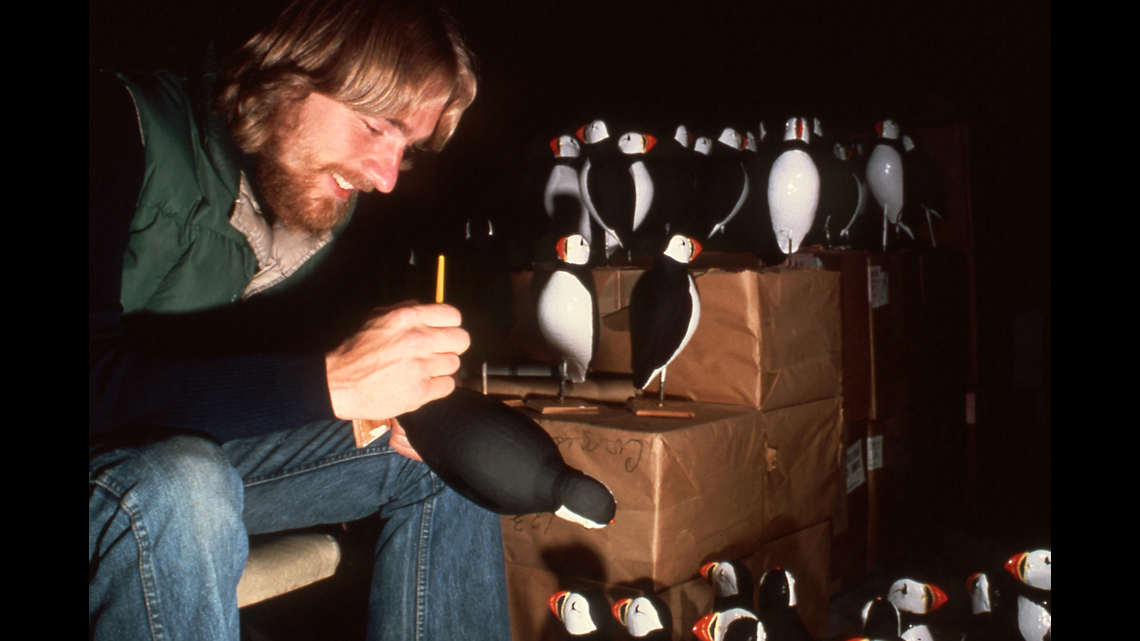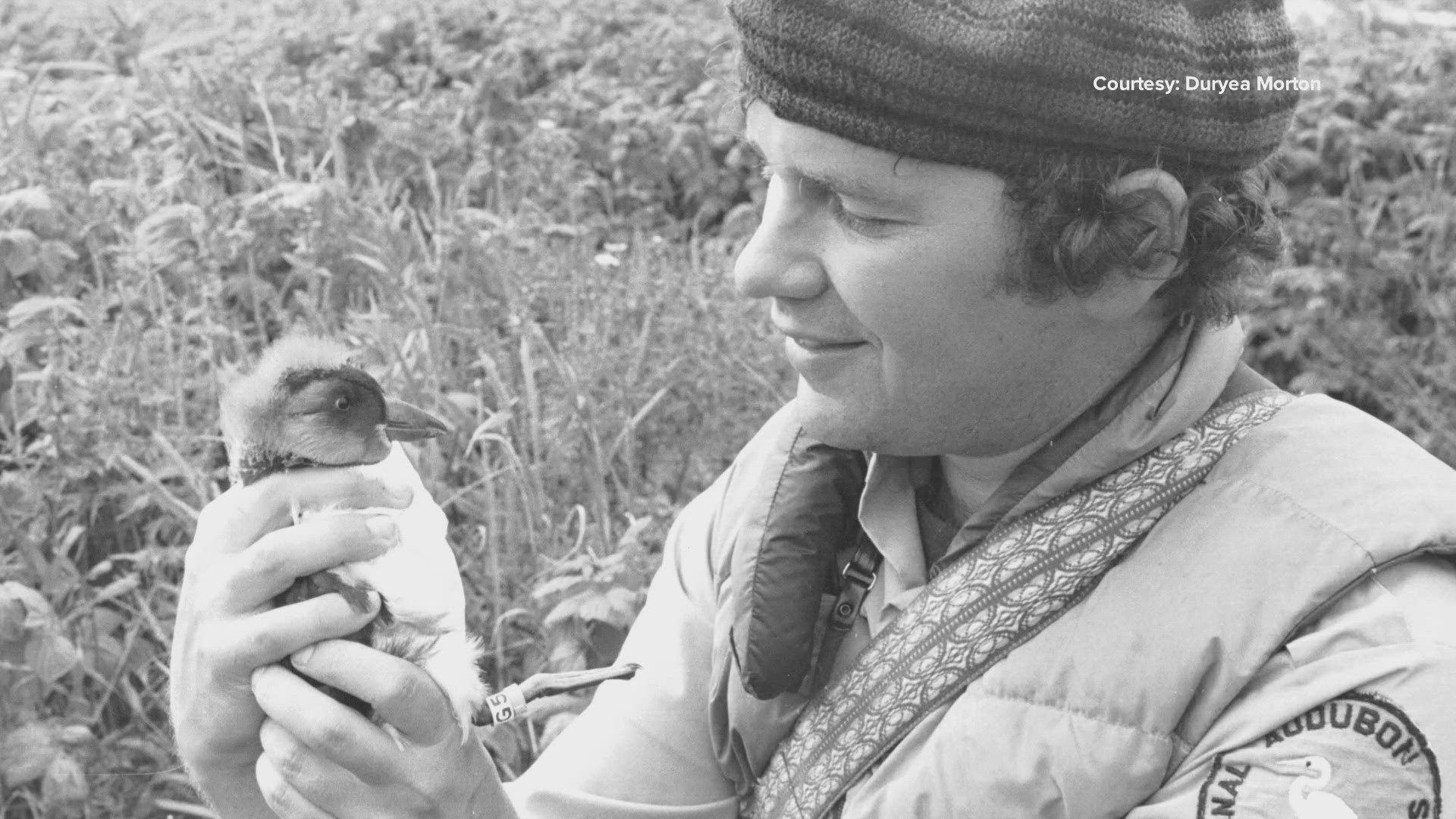ST GEORGE, Maine — Maine has a puffin population thanks to one determined researcher who hatched a plan more than 50 years ago. His idea was to take newly hatched puffins—also known as pufflings—from Newfoundland and bring them back to Eastern Egg Rock, an island off the coast of Maine where they had once lived, but over the years had been killed off by predators and humans.
It was a wild idea at the time, but Dr. Stephen Kress thought maybe if they grew up on the island they'd come back to it as adults and keep breeding.
Despite a successful regrowth now, more than 50 years later, it was a slow start to his so-called Project Puffin.
"After about the first four years when none of the puffins came back, I was starting to, you know, wonder for sure," Kress said.
Every summer for those first four years, Kress and a team of researchers planted themselves on Eastern Egg Rock along with a new batch of pufflings taken from Canada's population, kept them safe, and watched them fledge never knowing if they'd return to the island.
"And because normally puffins are colonial birds, it would take a very brave puffin to land on an island all by itself. So my thinking around that was to try to put some decoys on the island to give them the impression there were other puffins there and eventually, I even played recordings of puffins, and eventually, I also put mirrors up to give the puffins something to look at that would move," Kress said. "They did land almost immediately. We had our first sighting within days of putting up the decoys."
Suddenly, the project and Kress felt rejuvenated. It was working.


"It was super exciting because there had been so many critics and naysayers that said this was never going to work. It was a total miracle in my mind because what this meant was the chicks had learned, that rock was their home and they had—at least a few of them—had remembered that. There's thousands of islands in Maine alone so the puffins had to remember exactly how to get back to Egg Rock. So a few of them did, and that meant maybe more would, and that was the first sign of hope."
As one of the most successful rebuilds of a bird colony, Project Puffin hasn't just rekindled a population in Maine, Kress said Eastern Egg Rock and its surrounding islands have also become important training grounds.
"There's almost 1,000 young biologists that have been trained there at Eastern Egg Rock over the last 50 years and many of them are starting their own projects," Kress said. "Some of them have had careers of their own that were sparked by this experience, so that's kind of the new way I see Egg Rock and the other resort colonies on the coast to inspire the next generation of biologists."
More than five decades into this project, Kress said it's not only just the beginning of growing and supporting and learning from Maine's puffin population but also so much more.
"It's a new way of thinking about stewardship of the planet and how people have a responsibility to take care of life on Earth. We can't assume that nature will take care of all of these things because we have such a profound effect on the nature of this planet," he said.
Kress added that paying attention to how much plastic you're throwing away that will end up in the ocean, and how much carbon you're off-putting are simple ways to start helping.
Despite the incredible growth in the colony, without the teams of researchers who come back each summer, Kress says Maine's puffin population would easily be wiped out again by predators like peregrines, gulls, and eagles. So the project presses on. Kress is no longer involved, but he remains hopeful for its future.
"This hands-on active approach, that was the big surprise. And it worked so wonderfully that many other people are using these methods around the world. I know about 800 other projects in many countries helping about a third of the world's seabird species," Kress said. "And it's not just about the seabirds, these rich ocean spots at the seabirds are showing us, they're also important for fish, for sea turtles, for marine mammals, for all the wildlife that people care about—that they should be concerned about."
To learn more about Project Puffin and how to support the Audubon Seabird Institute's efforts, click here.

